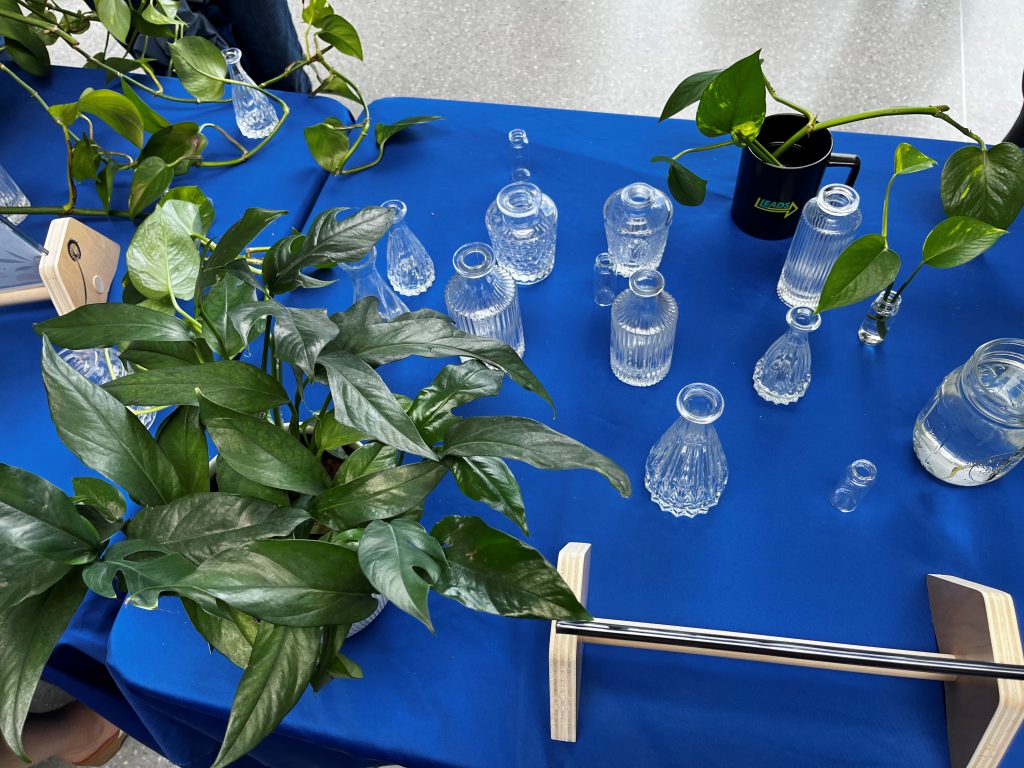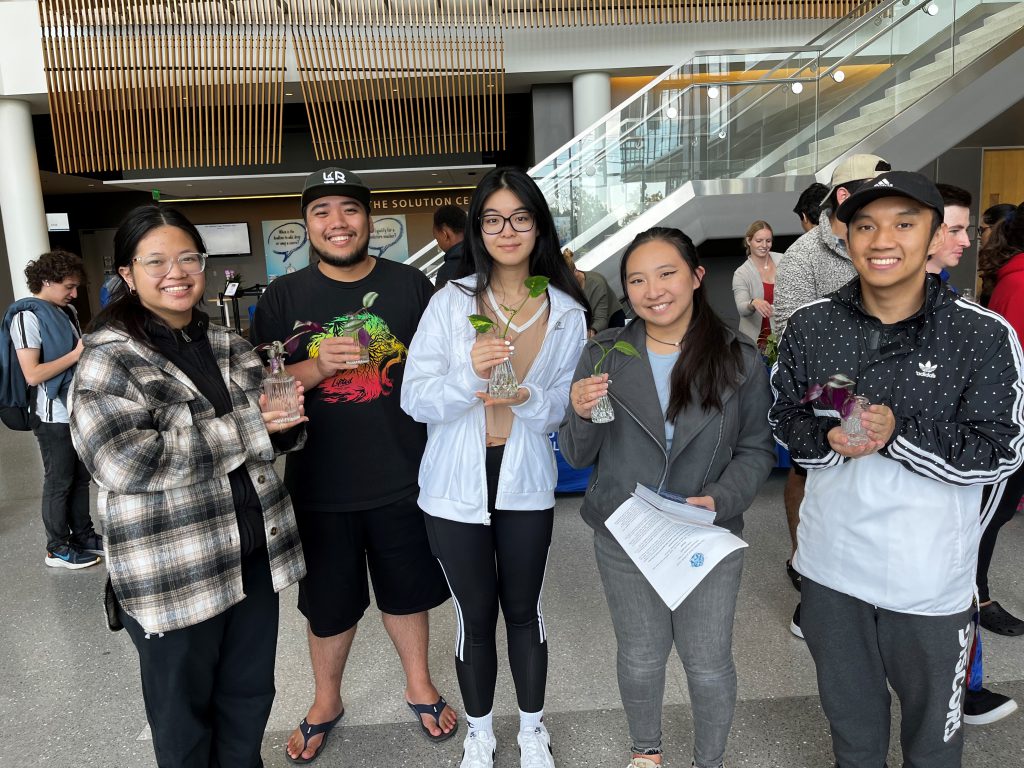By: Sydney Shea, Zuckerberg College of Health Sciences Well-Being Leader
College life can be chaotic between classes, work, and social life. Coming home after a long day to a cluttered room is the last thing you need. An organized space can help create a calm and focused mind by reducing distractions. Luckily, you don’t have to spend a fortune to achieve it! Thrifting is a budget-friendly way to find stylish storage solutions, cool pieces, and unique decor that can transform your space without breaking the bank. When your space is tidy, your brain doesn’t have to process visual chaos, making it easier to relax, concentrate, and be productive.
Declutter First
Before you go out thrifting for new stuff, look through what you have! As you’re organizing your items, ask yourself these questions:
- “Do I use this regularly?”
- “Does it add value to my life?”
- “Would I choose this over similar items I already own?”
If an item is just sitting in your closet taking up space, donate it!
Surrounding yourself with belongings that have meaning and a story behind them can be a great way to practice minimalism and declutter your space. That’s why I love thrifting; each item has its own history and unique characteristics.
Thrifting is a simple, yet powerful way to live more sustainably. It reduces textile waste, lowers your carbon footprint, and gives clothes a second life instead of sending them to landfills. Since producing new clothing requires tons of water and energy, thrifting can help conserve resources while slowing down the harmful effects of fast fashion.
Beyond the environmental impact, thrifting can help you save money and support local communities through charity-based stores.
My Go-to Spots for Thrifting:
I’ve been an avid thrifter my whole life, and over the years, I’ve discovered some amazing secondhand spots in and around the Lowell area.
Here’s a list of a few of them:
1. Saint Vincent de Paul – Lowell, MA
This is my favorite thrift store in the area! It’s a hidden gem filled with affordable items, from clothing and shoes to knickknacks. Plus, shopping here supports local outreach efforts, making it a win-win.
2. Goodwill Outlet – Hudson, NH
If you’re up for some hunting, the Goodwill Outlet (aka “the bins”) in Hudson, NH is worth the trip. Unlike regular Goodwill stores, this outlet sells items by the pound, making it one of the most budget-friendly places to thrift.
3. Savers – Nashua, NH
Savers is a thrifting classic, and the Nashua location never disappoints. It’s well-organized, making it a great spot if you prefer a less chaotic shopping experience.
Whether you’re new to thrifting or a pro, Lowell and its surrounding areas offer great spots to check out. Next time you’re looking to refresh your wardrobe or living space, consider giving pre-loved items a second chance!

